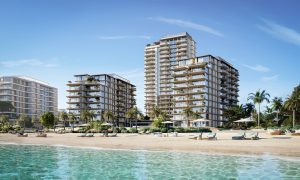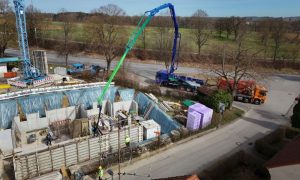Outlook for 2019: Nicholas Mclean, managing director, CBRE Middle East
Leading figures in the UAE construction industry predict the major trends and issues that will disrupt the market in 2019

The evolving global economic order, digitisation and shifting consumer trends are underpinning a likely wave of changes throughout the UAE’s real estate industry in 2019. The introduction of new laws relating to 100% foreign ownership, dual licensing, and longer visas for highly skilled professionals working in the science, research and medical fields demonstrate the country’s commitment to developing a thriving knowledge-based economy, a world-class business hub and an economic regional powerhouse.
The consolidation of occupiers’ office space across the emirates in 2019 is a continuing trend, as they take advantage of competitive market rents, greater efficiency and more flexible space. The majority of our Fortune 500 clients who are enthusiastic for expansion and entry into the Middle East region continue to target UAE business hubs such as Dubai and Abu Dhabi. Asia Pacific corporations in particular are undertaking an increased level of exploratory activity in the Dubai market.
Dubai’s retail sector is highly competitive among both occupiers and landlords. Differentiation and the successful introduction of omnichannel shopping experiences in the former group and flexibility with the latter group will prove the key to success for many brands. As more new malls move closer to completion, it will be important for existing facilities to continue to innovate to provide destinations that go beyond retail and offer a wealth of entertainment, wellness and F&B experiences for the whole family.
We can expect to see a rise in the number of lifestyle-focused retail venues which will be home to a diverse mix of F&B, entertainment and retail options. As the retail sector adapts to changing consumer trends and habits, increasingly sophisticated data analytics are helping landlords and tenants determine the most effective location and retailer complementarity. The growing impact of digitisation and experiential shopping at brick and mortar outlets will be crucial in driving efficiency, margin and integration of online and offline propositions.
In 2018, we saw a strong increase in demand for high-quality warehouse space as more international brands look to move into the UAE market. Access to land for development and the relatively small size and opacity of the market remain key challenges. Opportunities for investors do however exist in this sector, particularly where end users occupy under the terms of longer leases of ten years or more. As the popularity of online shopping and same-day delivery continues, we can expect the demand for high-quality space to continue to rise, especially in strategic areas such as Dubai South.
Saudi Arabia is an important market to watch in 2019. The Kingdom’s fledgling entertainment and tourism sectors are set to grow rapidly, with the government suggesting that it will invest $64bn over the next decade. It is hoped that this expansion will drive more new visitors to the region.
Returning to the UAE and the challenges faced across several real estate sub-sectors, the country has proven itself to be robust in reacting to, and in some cases initiating, new demand for real estate. The demonstrable agility of the UAE and its increasing ability to adapt to challenges will be instrumental in facilitating growth across all the diverse components that make up the property markets here.






















